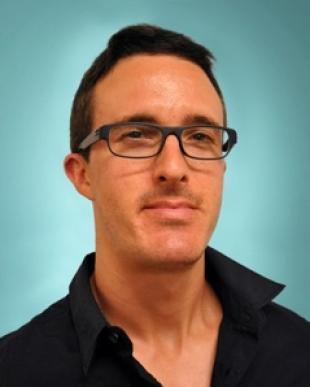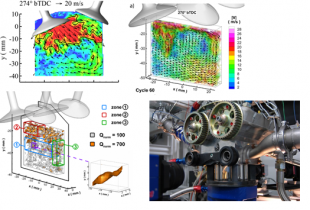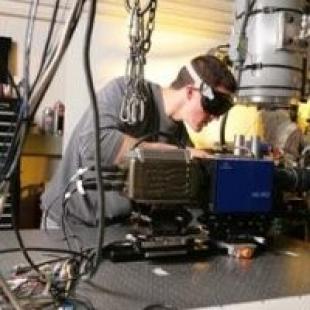Location:
Classroom 2, Sanderson Building
Date:
Analysis of the turbulent in-cylinder flow in a piston engine using tomographic and planar particle image velocimetry measurements
University Talks Link: http://talks.is.ed.ac.uk/talk/991/show.
Engine flows are highly more relevant than the filling and emptying of the chamber contents; they are responsible for describing the key processes of turbulent mixing and combustion that define engine efficiency and pollutant formation. Engine development for improvement of fuel economy and reduced emissions require tools to accurately measure and predict the turbulent in-cylinder flow. Reynolds-averaged Navier-Stokes (RANS) and large-eddy simulations (LES) are powerful computational tools to predict engine flows. Model validation is needed for any numerical tool modeling turbulent flows. The need for well-documented velocimetry measurements is important for the development of predictive models. Measurements that provide distribution requisites of turbulent statistical theory quantities and can discern their sensitivities at different stages throughout the engine cycle are well-sought after to provide useful metrics for comparison between experiments and simulations.
In this seminar, we will look at novel experimental flow measurements and analysis that aims to couple statistical flow theory quantities (quantities that we model) with ‘instantaneous’ turbulence (quantities that we directly measure and observe). A novel aspect of this work is that it utilizes tomographic PIV for the evaluation of spatially resolved distributions of Reynolds stress tensors, anisotropic Reynolds stress invariants and 3D turbulent vortical structures in an optically accessible engine.
Dr. Brian Peterson joined University of Edinburgh in 2015 as part of the Clean Combustion Group. He obtained his PhD from the University of Michigan in 2010. He then moved to Germany and performed a 3.5 year post doc at Technische Universität (TU) Darmstadt as part of the Diagnostics and Reactive Flows group. Before coming to Edinburgh, he performed another post doctorial appointment at the Combustion Research Facility at Sandia National Laboratories in California. His research comprises of development and application of advanced laser diagnostics to study fundamental processes (turbulent / chemistry interactions) in reactive flows. He is founder of the Darmstadt Engine Workshop which is an academic approach to improve the methods used to measure and predict turbulent flows within internal combustion engines. He has held grants with the Detusche Forschungsgemeindschaft (DFG) in Germany and currently holds grants with EPSRC.





